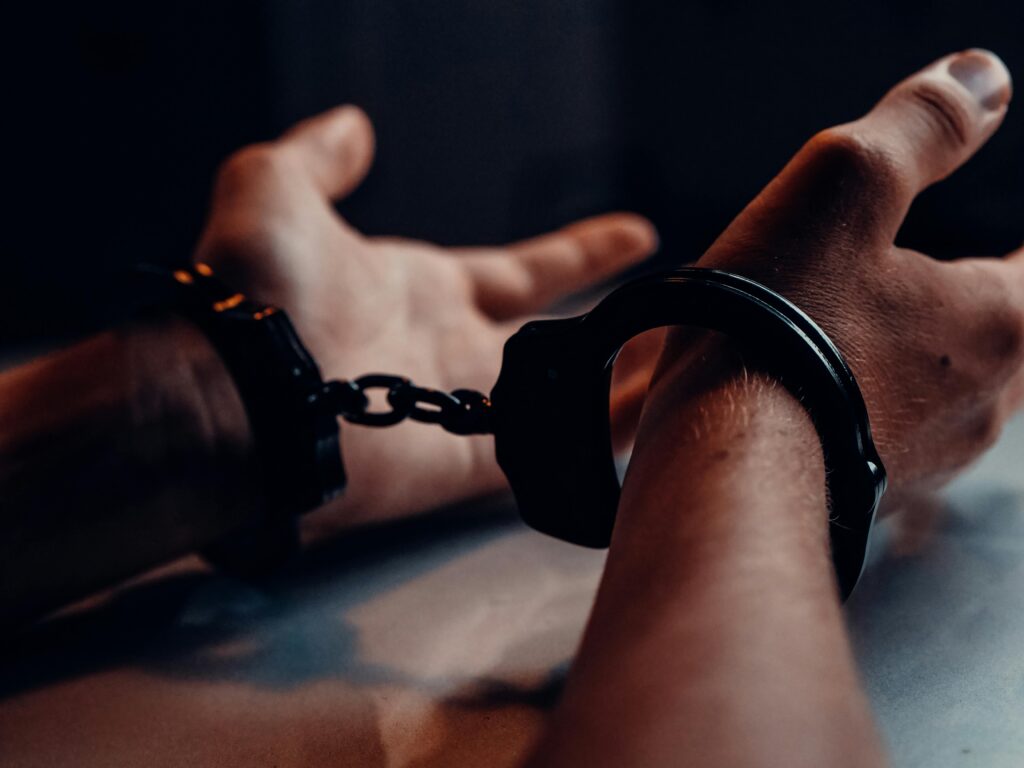Lahore – In a significant breakthrough against the ruthless human trafficking network operating in Pakistan, the Federal Investigation Agency (FIA) Gujranwala Zone has arrested four suspects involved in smuggling people abroad illegally. Among them is a notorious human smuggler directly linked to the tragic Moroccan boat incident that claimed several innocent lives.
According to the official statement issued by the FIA, the suspects were apprehended from various locations across Sialkot, Gujranwala, and Gujrat — areas often reported as hotspots for human trafficking operations. The arrested individuals have been identified as Ejaz Faisal, Tariq Mehmood, Shahbaz Ahmed, and Tanveer Tariq — all of whom were allegedly active members of an organized human smuggling ring.
Moroccan Boat Tragedy: A Grim Reminder of Smugglers’ Ruthlessness
One of the key accused, Ejaz Faisal, has been declared a proclaimed offender and is believed to be a central figure in the gang responsible for the Moroccan boat tragedy. This incident, which still haunts the families of the victims, involved desperate migrants being illegally sent to Spain by sea — a journey that ended in disaster when the boat capsized mid-way, leading to multiple casualties.
According to FIA investigators, Ejaz Faisal was directly involved in extracting money from victims with false promises of safely transporting them to Europe. Among the victims was Mohammad Yaqoob, who fell prey to this dangerous scheme. Lured by the dream of a better life, Yaqoob paid a hefty sum for his journey to Spain but instead met a tragic end in the boat wreck.
The Deceptive Web of Promises and Betrayal
The investigation further revealed that the accused were running a well-organized network targeting gullible citizens desperate to secure employment or a better future abroad. These traffickers used fake job offers, promises of European visas, and so-called “safe routes” to exploit people financially and emotionally.

Ejaz Faisal, along with his accomplices, collected millions of rupees under the pretense of arranging overseas employment and visas. In one instance, Faisal reportedly took Rs 240,000 from an individual with the promise of sending him to Saudi Arabia for employment. Predictably, the promise was never fulfilled.
Similarly, another accused, Tanveer Tariq, had been on the run since 2022. A declared judicial fugitive, Tariq extracted over Rs 300,000 from a victim under the guise of securing a job in Dubai. Despite pocketing the money, Tariq made no arrangements and vanished, leaving the victim devastated.
Likewise, Shahbaz Ahmed managed to cheat another individual by charging over Rs 600,000 with the false assurance of sending him to Turkey — another popular destination for migrants seeking a gateway into Europe. However, like others, this plan never materialized.
Human Cost and Legal Crackdown
What makes these cases more alarming is not just the financial exploitation, but the human cost involved. Victims who hand over their life savings often face uncertain futures — stranded in foreign lands, imprisoned, or worse — dead. The Moroccan boat tragedy is just one of many examples where greed and deception by traffickers result in loss of human life.
The FIA spokesperson emphasized that these arrests are part of a broader crackdown on human smugglers operating in the region. “The accused were involved in multiple cases of human trafficking and fraud.
The FIA revealed that the suspects had not only defrauded individuals but also established safe houses to hide from law enforcement. However, after weeks of surveillance and intelligence gathering, the agency managed to apprehend them.
A Growing Menace Fueled by Desperation
The desire to escape poverty, lack of employment opportunities, and the allure of a better life abroad drives many Pakistanis into the hands of such traffickers. Smugglers prey on these hopes, weaving tales of prosperity, easy jobs, and citizenships in countries like Spain, Saudi Arabia, Turkey, and the UAE.
However, the journey is rarely as promised. Victims are often forced into life-threatening sea journeys, imprisoned in foreign jails, or abandoned in countries where they are treated as illegal immigrants. Families left behind are burdened with debt, grief, and the loss of loved ones.
Over the years, human smuggling has evolved into a multi-billion-rupee underground industry in Pakistan. Despite repeated crackdowns, many organized groups continue to operate, adapting their methods and shifting their routes to avoid detection.
FIA’s Ongoing Mission to Dismantle Smuggling Networks
The FIA, particularly its Anti-Human Trafficking Circle, has intensified operations to curb this growing menace. The agency has launched further investigations following the recent arrests, with hopes of uncovering more layers of this smuggling ring. “These arrests are just the beginning. We are following the money trail and collecting evidence to ensure these criminals face the full force of the law,” the official added.
The FIA also urged citizens to remain vigilant and report any suspicious agents or illegal travel consultants promising overseas jobs or migration opportunities. “Only deal with licensed agents and verify their credentials. If the offer sounds too good to be true, it probably is,” the FIA spokesperson warned.
The Way Forward — Awareness and Accountability
The recent arrests are a reminder of the urgent need for awareness campaigns to educate the public about the dangers of illegal migration and human trafficking. False promises of quick overseas jobs or migration dreams often end in tragedy, as seen in the Moroccan boat incident.

There is also a growing demand for stricter regulations on travel agents and recruitment agencies. Holding these entities accountable, along with making examples out of traffickers like those arrested, could serve as a deterrent.
For now, the FIA’s action brings a small sense of relief and justice to the families affected by these criminal acts. But the larger battle against human smuggling networks continues — a battle that requires cooperation between law enforcement agencies, international governments, and local communities.
Conclusion
The FIA’s recent crackdown on this gang of human smugglers is a significant victory but also a sobering reminder of the ongoing challenges Pakistan faces in curbing human trafficking. While these arrests offer hope, thousands remain vulnerable, seeking a way out of poverty and hardship.
Ultimately, it is a collective responsibility — from the government to society at large — to protect its people from such exploitation, ensuring that no more lives are lost to the false promises of heartless traffickers.










